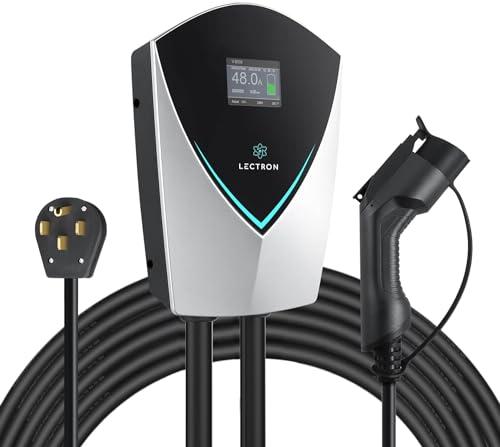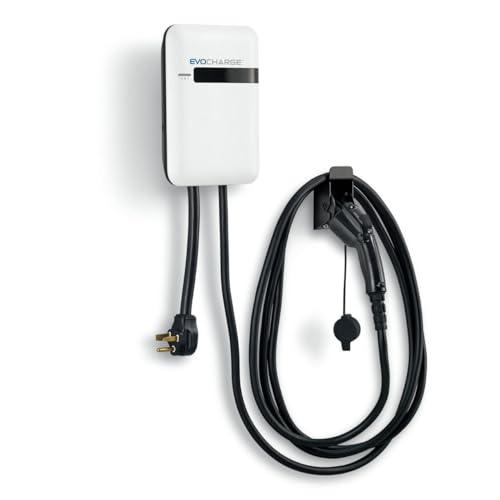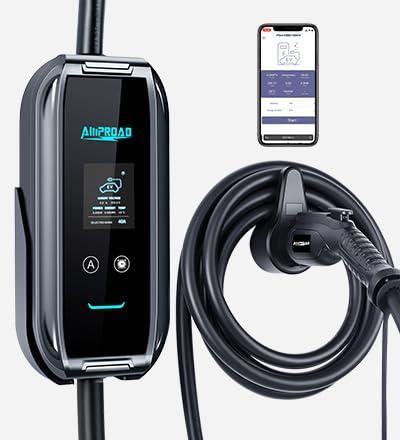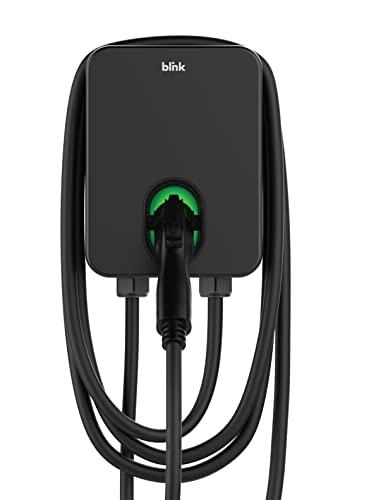Time
Tesla Charging Cost Calculator Utility
Benefits of the EV Charging Calculator
The EV Charging calculator was created to make it easier to calculate the operating time of the autocar and the cost of charging at home.
Why Accurate Monitoring of Charging Level is Essential
More and more people want to buy a Tesla and charge the electric car at home. It should be noted that this type of transport requires accurate monitoring of the charging level. This can create inconvenience in use.
Steps to Accurate Charging Time and Cost Calculation
The algorithm for using the calculator is quite simple and is based on selecting a Tesla model and the type of socket the home charger (EVSE) is plugged into. To correctly and more accurately determine the time to charge the machine using the charge calculator, the following steps should be followed:
- Selecting your machine model;
- Setting the initial and desired charge level of your battery;
- The charging current capacity.
By following these steps you can find out:
- How much time it will take to charge your car;
- The cost of such a charge;
- How many miles your electric car can travel after charging.
Supported Tesla Models in the Calculator
The calculator is updated with Tesla models and you can easily find here:
- Tesla Model Y
- Tesla Model S
- Tesla Model 3
- Tesla Model X
- Tesla Roadster
Avoiding Unexpected Charging Interruptions
This calculator will be an indispensable assistant to the driver of an electric car. By using the charge calculator you will avoid the situation when your car stalls before reaching the network charging station. The driver will now be able to accurately calculate his route with stops for recharging and know the price of charging.
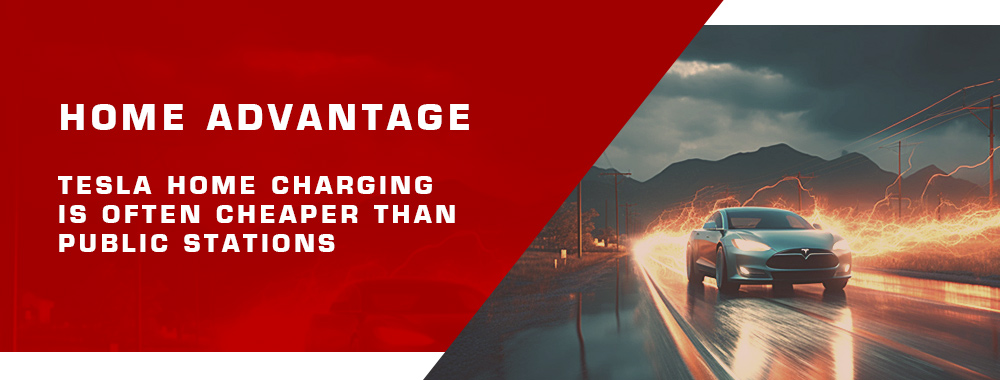
Unique Features of the EV Charging Calculator
Unlike other calculators, EV Charging calculation shows:
- The exact cost of recharging, with the possibility of adjustment.
- How many miles the car can travel with a given level of charge.
- Does not require any additional charges;
- Focuses on a specific model of electric car and its features of work;
- Helps to save a lot of time.
Factors Influencing Estimated Charging Time
Keep in mind that the estimated time can vary slightly. This figure may be affected by: the use of an extension cord, voltage fluctuations in the home network, battery life, ambient temperature. These factors are worth considering and, if possible, adjusting in the calculator when calculating costs for your Tesla.
Pros and Cons of Using a Charging Calculator
Utilizing a charging calculator presents both advantages and disadvantages for Tesla owners. On one hand, it provides precise estimations, aiding in planning and budgeting. It also enhances understanding of how various conditions affect charging. However, users must remember that real-world conditions might differ from estimations, which can slightly alter charging time and costs.
Tesla Home Charging Expenses
Cost Comparison: Home vs. Public Charging
Which is more profitable: charging at home or at a public charging station? Use the calculator and find out.
Breakdown of Tesla Charging Costs by Model
| 50 Amp Charger | 16 Amp Charger | 30 Amp Charger | |
|---|---|---|---|
| Tesla Model X Standard Range (2019 - 2020) | $7.2 | $7.2 | $7.2 |
| Tesla Model 3 Standard Range (2019) | $4.5 | $4.5 | $4.5 |
| Tesla Model Y Standard Range (2021) | $4.5 | $4.5 | $4.5 |
Electricity Pricing Dynamics Affecting Charging Costs
The cost of electricity varies depending on supply and demand, energy source (e.g., renewable vs. non-renewable), and regional pricing strategies. Peaks in demand or shortages in supply, for example during extremely hot or cold days, can drive up costs. Additionally, regions that predominantly use renewable energy sources may offer cheaper rates than areas reliant on fossil fuels.

Impact of Seasonal Variations on Charging Costs
Seasonal changes can influence charging costs. For instance, winter months may see increased electricity usage due to heating needs, potentially raising rates. Conversely, areas with abundant solar energy might offer cheaper rates during sunny summer months. Seasonal variations are crucial to consider when estimating annual charging expenses.
Tesla's Home Charging Options
Understanding Tesla’s Charging Connectors
For those who are not yet familiar, Tesla offers two types of charging connectors for its electric vehicles - the Mobile Connector and the Wall Connector. The Mobile Connector is a small, portable charger that can be used at home or on the go, while the Wall Connector is a larger, more permanent charger that can be installed in your garage or home.
Alternative Charging Solutions for Tesla
If you're looking for an alternative to one of Tesla's charging connectors, here are some of the best options available.
Benefits of Dedicated Home Charging Stations
Dedicated home charging stations provide numerous benefits. They offer faster charging speeds compared to standard outlets, ensuring your Tesla is ready when needed. Having a dedicated station also means convenience, eliminating the need to rely on public charging stations. Moreover, it can increase property value, appealing to potential future buyers interested in EVs.
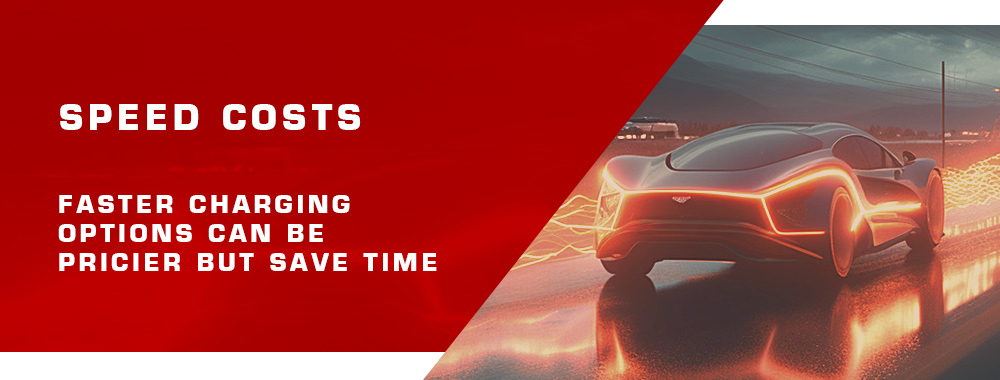
Environmental Impact of Home Charging vs. Gasoline
Charging a Tesla at home has a significantly lower environmental footprint compared to gasoline cars. Electric vehicles (EVs), when charged from renewable sources, produce zero emissions. Even when charged from non-renewable sources, EVs are generally more efficient and produce fewer greenhouse gases than their gasoline counterparts. Transitioning to home charging thus aids in reducing one's carbon footprint.
Choosing the Optimal Home Charger for Tesla
Determining the Right Type of Charger
You need to pick a charger that will work best for your home. Some chargers are faster than others, so it is important to find the one that will work the quickest for you. If you own Tesla or non-Tesla EV, then you know that one of the most important pieces of equipment you need is a good charger. After all, without a way to charge your car's batteries, you'll be stuck with a very expensive paperweight. So how do you choose the best charger for your needs?

Importance of Charger Amperage
You'll also want to consider the amperage of the charger. A higher amperage charger will charge your car's batteries faster, but it may require a dedicated circuit in your home's electrical panel.
Ensuring Compatibility with Tesla’s Charging Port
Finally, you'll want to make sure the charger you choose is compatible with your car's charging port. Not all chargers are created equal, so check with your car's manufacturer to be sure.
Future-Proofing Your Home Charging Setup
As technology advances, it's crucial to ensure your home charging setup remains compatible with future EV models and updates. Consider investing in adaptable charging equipment and infrastructure that can handle higher capacities and different connector types. Regular software updates, where available, can also help in staying current with the latest charging technologies.
Installation and Maintenance Tips
For installation, always hire a certified electrician familiar with EV charging stations to ensure safety and compliance with local regulations. Place the charger close to where the car is parked but in a location protected from the elements. For maintenance, regularly inspect the charger for wear and tear, clean the connector, and check for software updates to ensure optimal performance.
Statewise Tesla Home Charging Cost Estimation
Comparing Costs Across Various States

| State | Average Price of 1kW for Resident (cents) | Total Cost for Charging Tesla (40kW*price) |
|---|---|---|
| Alabama | 12.50 | $5.00 |
| Alaska | 25.26 | $10.10 |
| Arizona | 14.00 | $5.60 |
| Arkansas | 10.62 | $4.25 |
| California | 24.71 | $9.88 |
| Colorado | 14.06 | $5.62 |
| Connecticut | 24.76 | $9.90 |
| Delaware | 16.66 | $6.66 |
| Florida | 12.82 | $5.13 |
| Georgia | 11.82 | $4.73 |
| Hawaii | 39.88 | $15.95 |
| Idaho | 11.03 | $4.41 |
| Illinois | 13.37 | $5.35 |
| Indiana | 11.40 | $4.56 |
| Iowa | 11.85 | $4.74 |
| Kansas | 11.71 | $4.68 |
| Kentucky | 11.06 | $4.42 |
| Louisiana | 11.49 | $4.60 |
| Maine | 17.60 | $7.04 |
| Maryland | 16.75 | $6.70 |
| Massachusetts | 24.09 | $9.64 |
| Michigan | 15.53 | $6.21 |
| Minnesota | 14.00 | $5.60 |
| Mississippi | 11.36 | $4.54 |
| Missouri | 11.71 | $4.68 |
| Montana | 11.61 | $4.64 |
| Nebraska | 12.26 | $4.90 |
| Nevada | 13.42 | $5.37 |
| New Hampshire | 21.39 | $8.56 |
| New Jersey | 19.36 | $7.74 |
| New Mexico | 13.11 | $5.24 |
| New York | 20.97 | $8.39 |
| North Carolina | 11.97 | $4.79 |
| North Dakota | 10.82 | $4.33 |
| Ohio | 12.44 | $4.98 |
| Oklahoma | 10.95 | $4.38 |
| Oregon | 15.24 | $6.10 |
| Pennsylvania | 14.42 | $5.77 |
| Rhode Island | 23.72 | $9.49 |
| South Carolina | 12.05 | $4.82 |
| South Dakota | 11.60 | $4.64 |
| Tennessee | 11.82 | $4.73 |
| Texas | 13.03 | $5.21 |
| Utah | 11.86 | $4.74 |
| Vermont | 21.25 | $8.50 |
| Virginia | 13.10 | $5.24 |
| Washington | 12.42 | $4.97 |
| West Virginia | 12.34 | $4.94 |
| Wisconsin | 13.93 | $5.57 |
| Wyoming | 12.34 | $4.94 |
Please note that these prices are an estimation and may not reflect the actual cost of charging a Tesla in each state, as electricity prices may vary based on various factors, including location.
Factors Influencing State-specific Charging Costs
Different states have varying electricity costs based on their energy sources, state policies, and infrastructure. Some states might have incentives promoting renewable energy, leading to lower electricity costs. Others might rely on non-renewable sources, making electricity more expensive. It's essential to research state-specific rates and trends for accurate charging cost estimations.
Understanding Electricity Price Variations
Electricity prices can vary for numerous reasons. They might fluctuate based on peak demand times, availability of renewable energy sources, or even geopolitical events affecting fuel prices. Monitoring local utility rates and trends can provide insights into potential future price changes.
TIPS
Plan your charging stops wisely: Utilize the Tesla Supercharger map and the in-car navigation system to identify charging locations along your route. Factor in peak and off-peak rates to optimize your charging cost and reduce waiting times.
Become a Tesla buddy: Join Tesla owner communities, online forums, and social media groups to stay informed about the latest tips, tricks, and hacks for saving on Supercharger costs. Plus, you'll gain access to a wealth of knowledge from fellow Tesla enthusiasts.
Charge at home, save on the road: Charging your Tesla at home during off-peak hours is usually more cost-effective than using Superchargers. By doing so, you can save your Supercharger sessions for long road trips or emergency situations.
Level up with Level 2 chargers: When you're not in a hurry, consider using Level 2 chargers (public or destination chargers) as an alternative to Superchargers. They may take longer to charge your Tesla, but they often come with lower costs or are sometimes free.
Stay in the know with Tesla updates: Keep an eye out for Tesla's occasional Supercharger promotions and discounts. By staying informed, you can plan your charging sessions around these deals and save on your overall charging costs.
Keep it cool – literally: Charging at a lower temperature can help prolong your battery life and reduce the energy required for a full charge. Park your Tesla in a shaded area or use the in-car climate control feature to maintain optimal charging conditions.
Opt for off-peak hours: Check your local electricity rates and try to charge during off-peak hours when energy prices are lower. This strategy can help you save on both home and Supercharger charging costs.
Become a referral master: Take advantage of Tesla's referral program by sharing your referral code with friends and family. As they purchase Teslas using your code, you can earn rewards such as free Supercharging miles, making your charging sessions more cost-effective.
Go solar and save: If you own a home, consider investing in solar panels. By generating your own electricity, you can charge your Tesla for a fraction of the cost and even earn credits by selling excess energy back to the grid.
Monitor your charging habits: Keep track of your charging sessions and costs using Tesla's in-car data and third-party apps. Analyzing your charging patterns can help you identify opportunities for optimizing your energy consumption and reducing overall Supercharger costs.
State Incentives and Rebates for EV Owners
Many states offer incentives and rebates to promote electric vehicle adoption. These can range from tax credits on EV purchases to reduced electricity rates for home charging. It's a good idea to check with local and state government websites to understand the incentives available, which can substantially offset charging costs over time.
